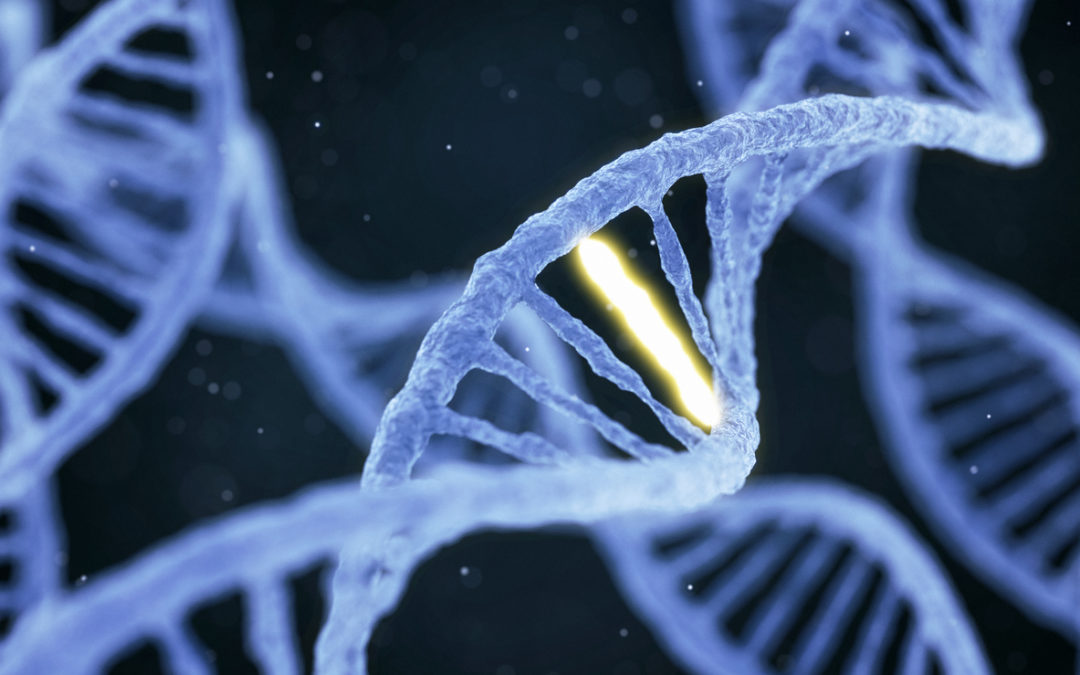Individuals who have family members with certain medical conditions may benefit by seeing a genetic counselor to explore the risk to develop the condition themselves as well as pass it on to their children. One part of the consultation will usually be to record the family health history. It is important not only to understand each family member’s symptoms, but also understand how each person is related to one another. Genetic counselors will often sketch that history into a “family tree” (also called a “pedigree”) in order to analyze the likelihood that these symptoms can be explained by a single genetic disease, which can be inherited from generation to generation.
What is “inheritance”?
“Inheritance” is a fundamental concept in genetics that explains how genes are passed from parents to offspring. Genes are the instructions that tell our bodies how to grow and develop properly and, to an extent, determine what traits we exhibit. Traits can be characteristics such as eye color or could be a risk to develop a certain disease that runs in the family.
What is an “autosome”?
While scientists can’t agree on the exact number of genes within the human body, we know that we have two copies of each of our ~20,000 genes. We inherit one copy of our genes from our biological mother and the other copy of each gene from our biological father. Genes are organized into tightly wound bundles called chromosomes. Since we receive half of our genes from each parent, we receive half of our chromosomes from each parent. We have 23 pairs of chromosomes for a total of 46. Scientists number each of the chromosomes 1 through 22 according to size. These 22 chromosome pairs are called “autosomes.”
The 23rd pair are the “sex chromosomes” that determine whether we are male or female. Mothers always pass an X chromosome to an egg cell. Males will pass on an X or a Y chromosome to a sperm cell. Females have two X chromosomes, while males have one X and one Y chromosome.
What causes genetic diseases?
Genetic diseases are caused when there is a change (also called a “gene mutation” or “pathogenic variant”) in the sequence of a gene or pair of genes that prevent the body from following the gene’s instructions correctly. Sometimes this gene change can happen for the first time in an individual (“de novo”) and he/she can pass down that new mutation to future generations. In other instances, the gene change was inherited from one or both parents. Not all gene mutations lead to disease, however. Some gene mutations may be mild and not alter the function of the gene significantly, causing little to no symptoms. Other mutations in important genes can lead to a wide range of outcomes, from birth defects and intellectual disabilities to an increased risk of cancer later on in life.
What are “inheritance patterns”?
Some scientists specialize in studying genetic diseases that run in families. Some diseases can affect multiple generations within a family, while other diseases seem to appear without any known family history of the condition. Some diseases severely affect males while women seem to have mild to absent symptoms. With our growing understanding of what gene changes are important and how those gene changes are passed down in a family (also called an “inheritance pattern”), genetic counselors and other healthcare providers can infer the disease risk for future generations.
While there are other rare ways diseases can be passed from parent to offspring, most genetic diseases follow one of the following inheritance patterns:
- Autosomal dominant
- Autosomal recessive
- X-linked dominant
- X-linked recessive
- Mitochondrial
Each inheritance pattern is associated with different risks for passing on the condition to future generations. Based on the family history, providers may offer genetic testing to confirm the genetic disease and its inheritance pattern. Identifying the cause of the disease allows couples the option of pursuing preimplantation genetic testing (PGT). This is of benefit as PGT is the only reproductive option to reduce the risk of a known single-gene disorder that can be performed before pregnancy.

Leslie is a board-certified clinical genetic counselor and former Program Manager for the preimplantation genetic testing (PGT) program of the ORM Genomics team and former Project Manager for SharingHealthyGenes.com. She completed her Bachelor’s degree at DePauw University and her Master’s degree in Genetic Counseling at the University of Texas Graduate School of Biomedical Sciences at Houston. Since graduating in 2000, she has worked as a clinical genetic counselor in several specialties including prenatal, pediatric and cancer genetics and has been very involved with the National Society of Genetic Counselors.
